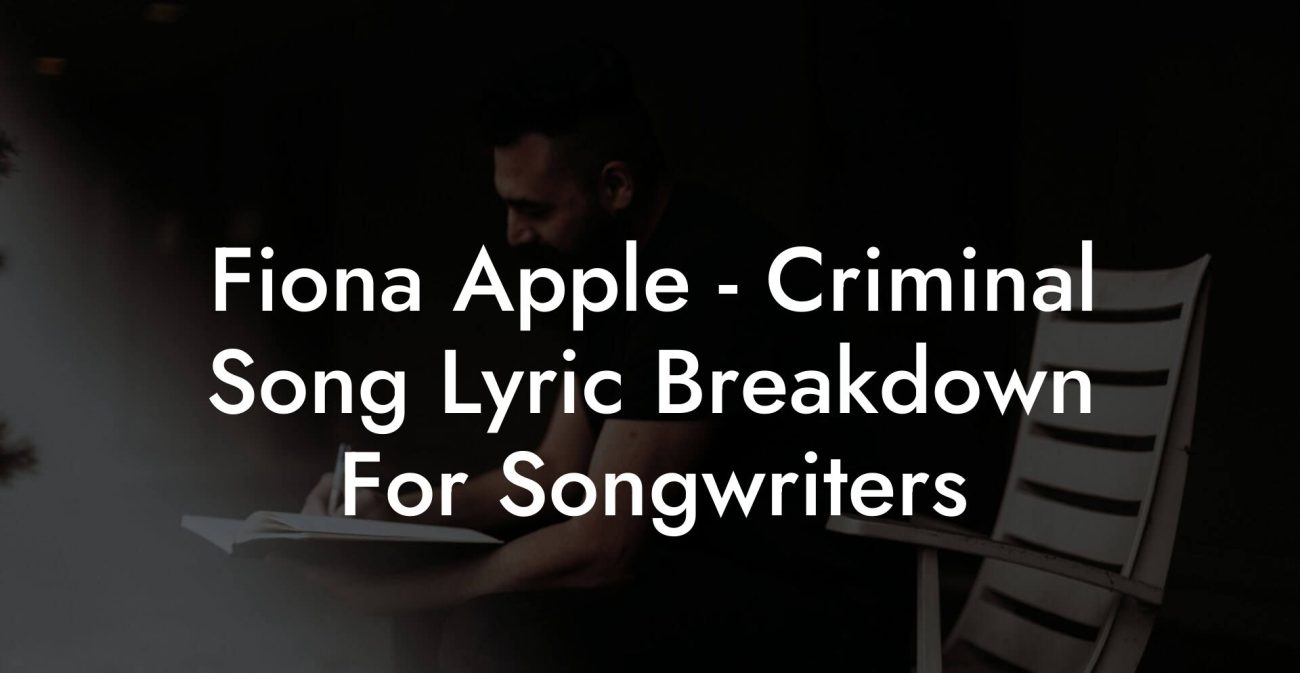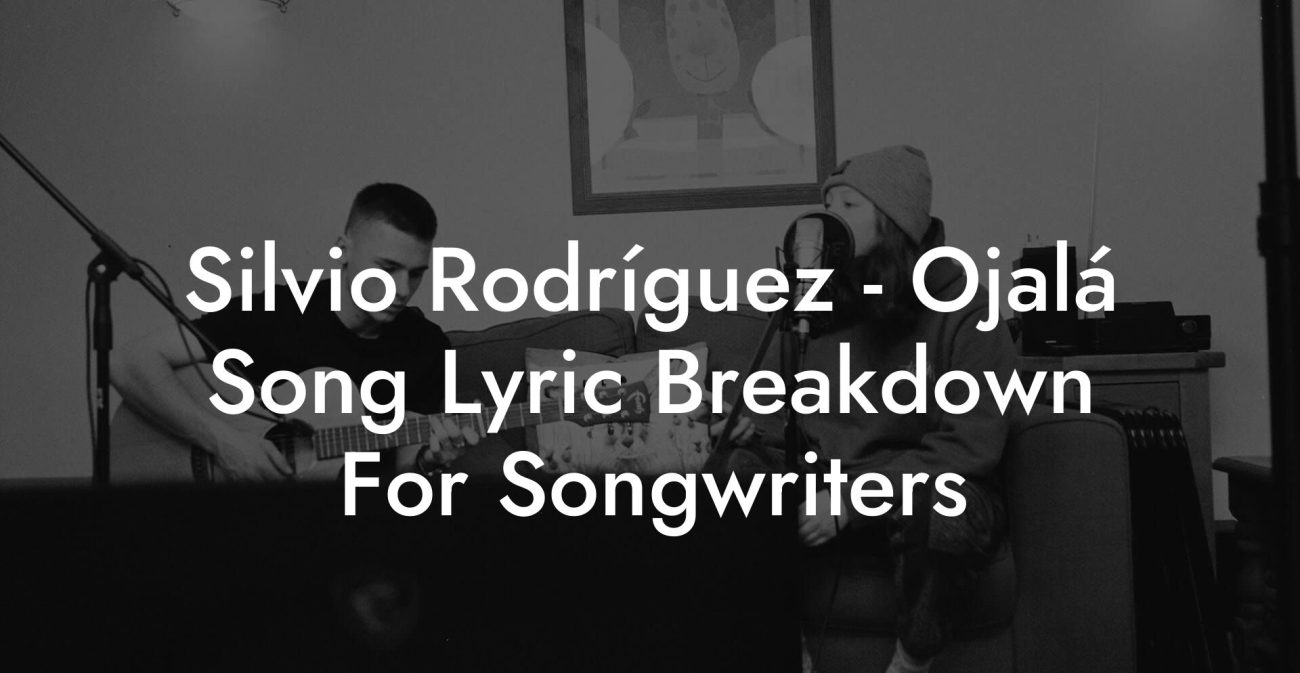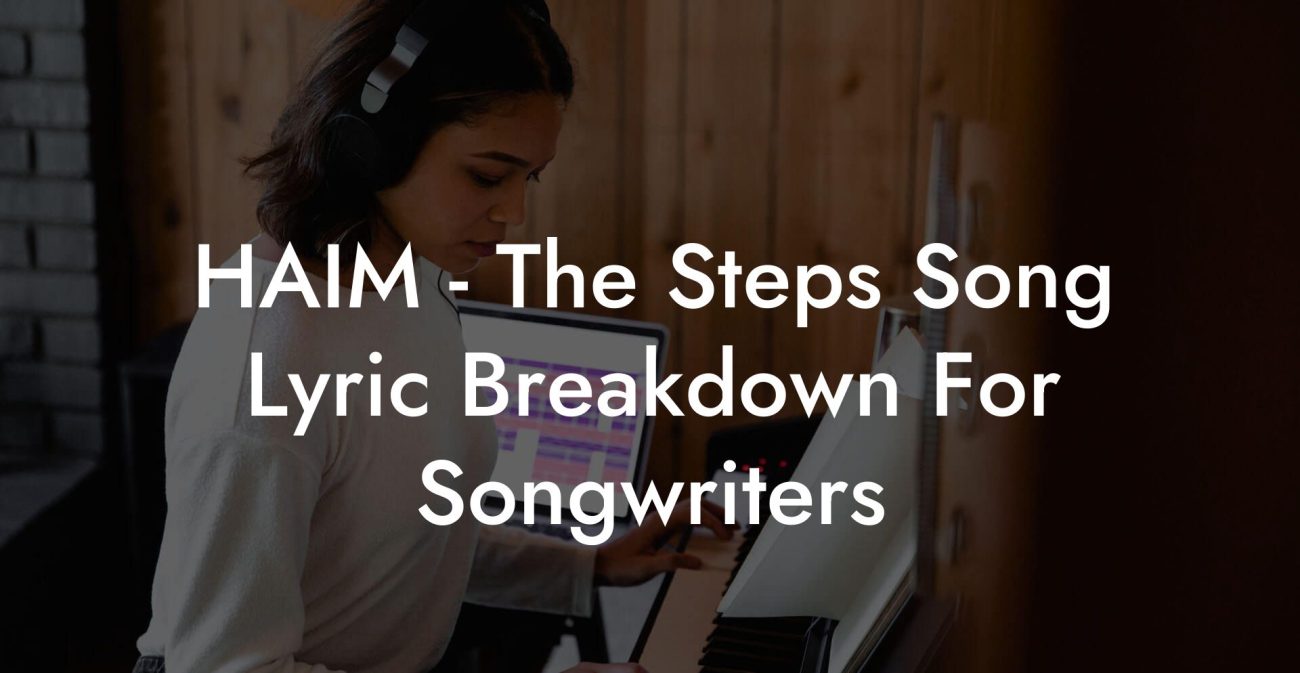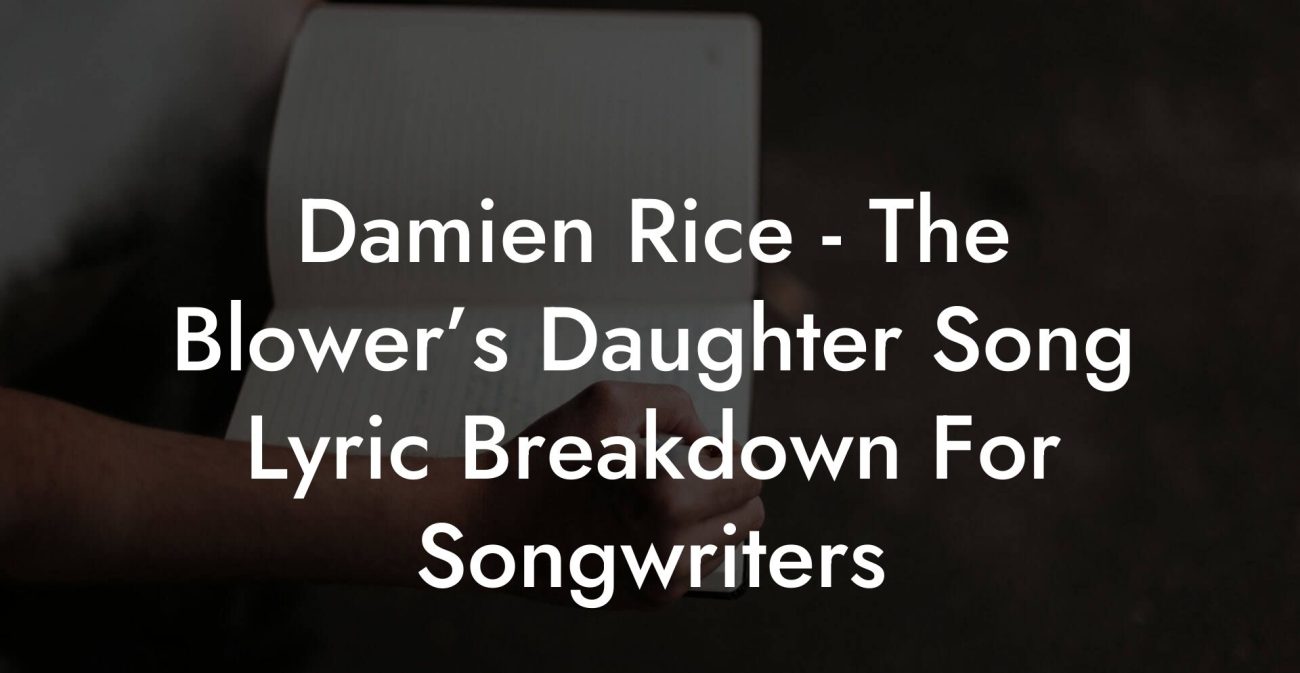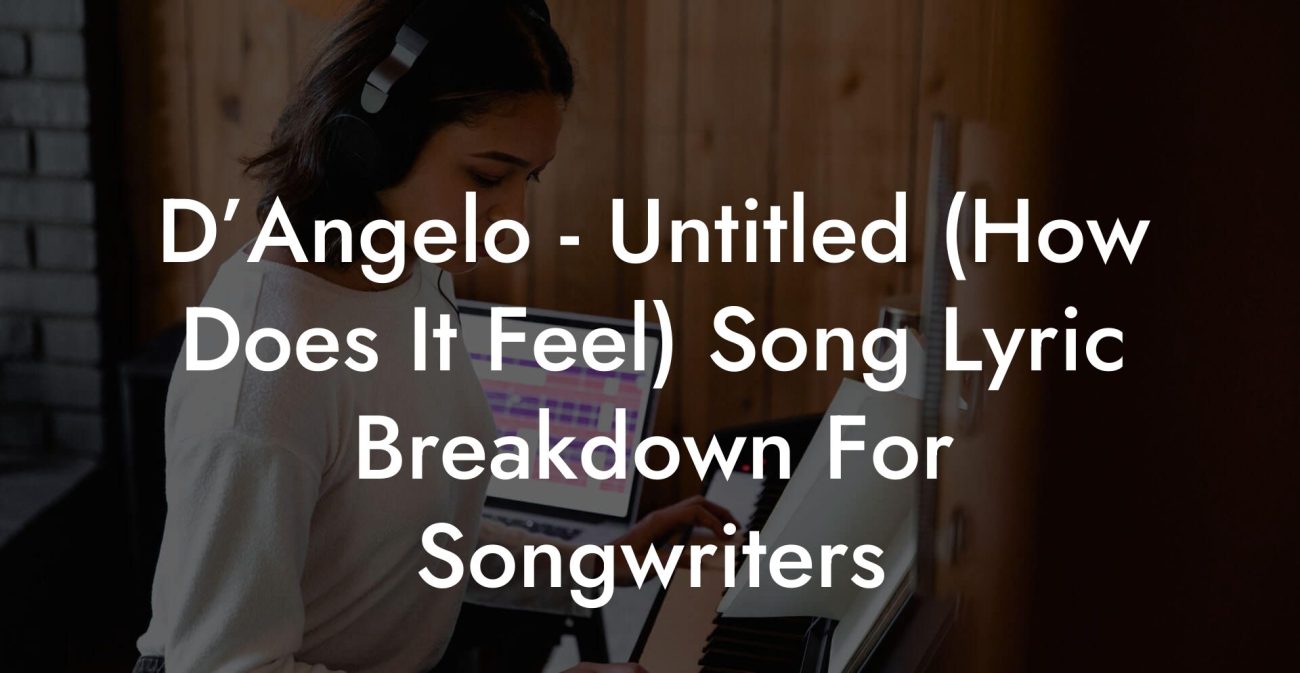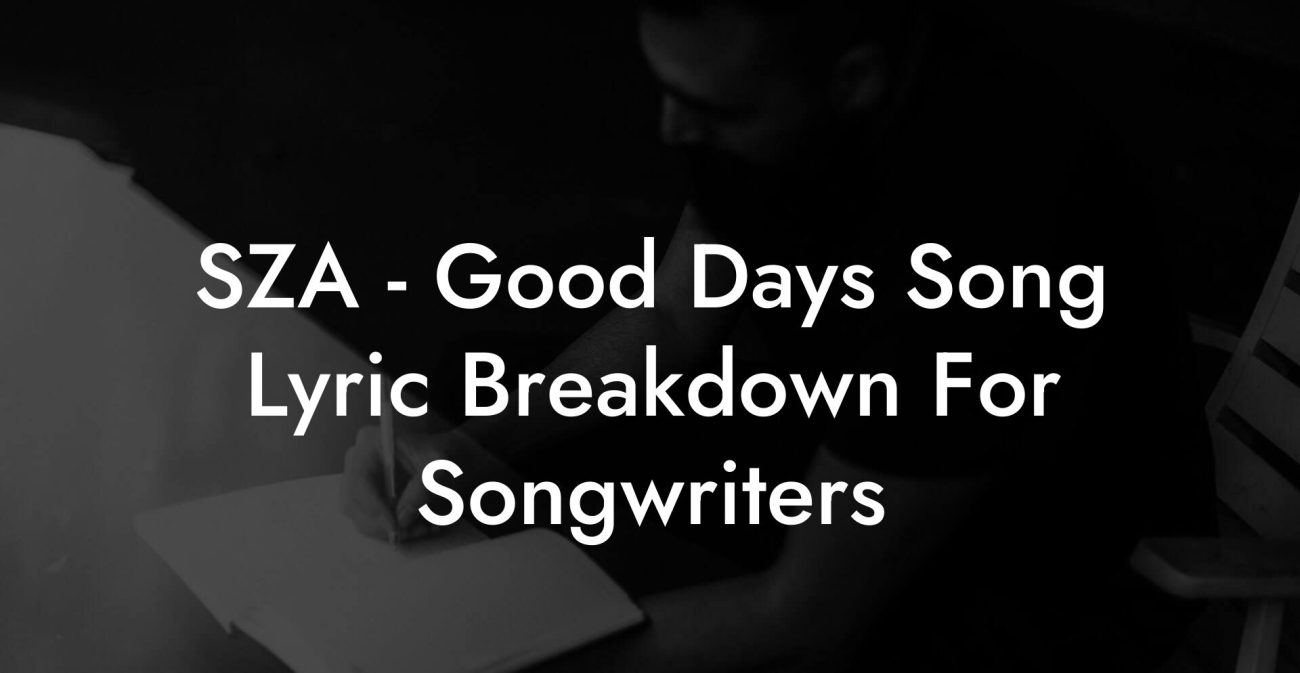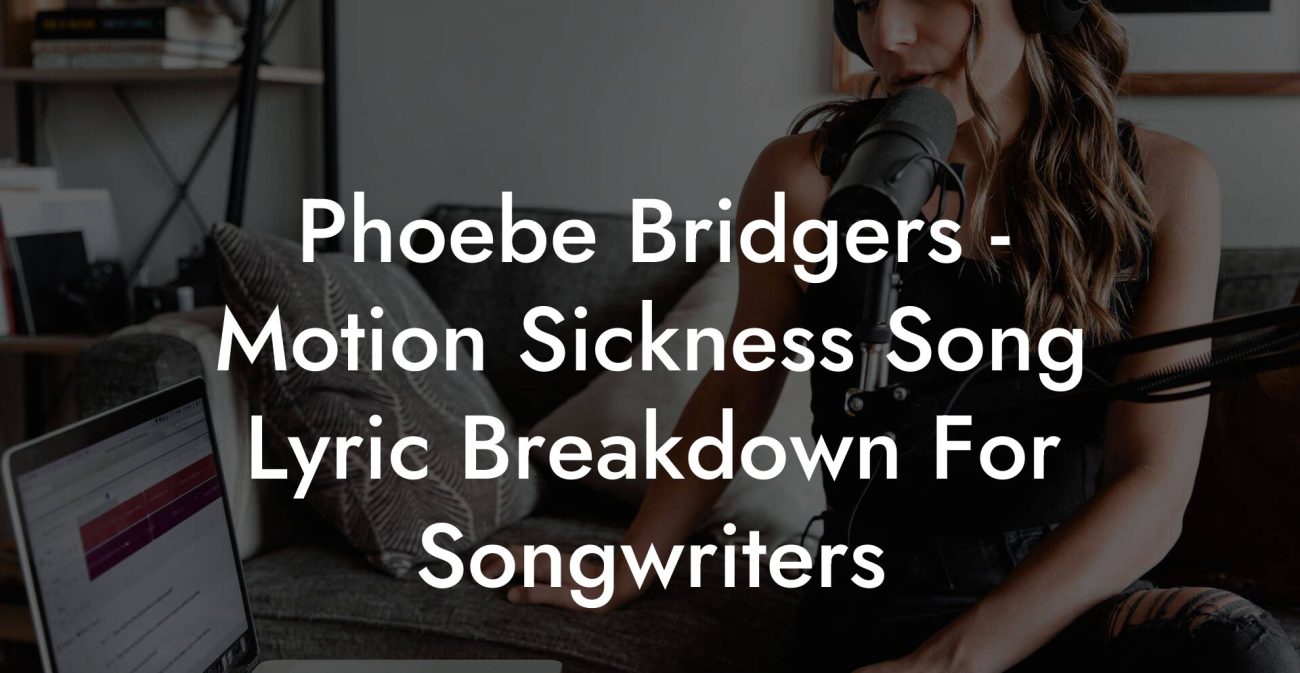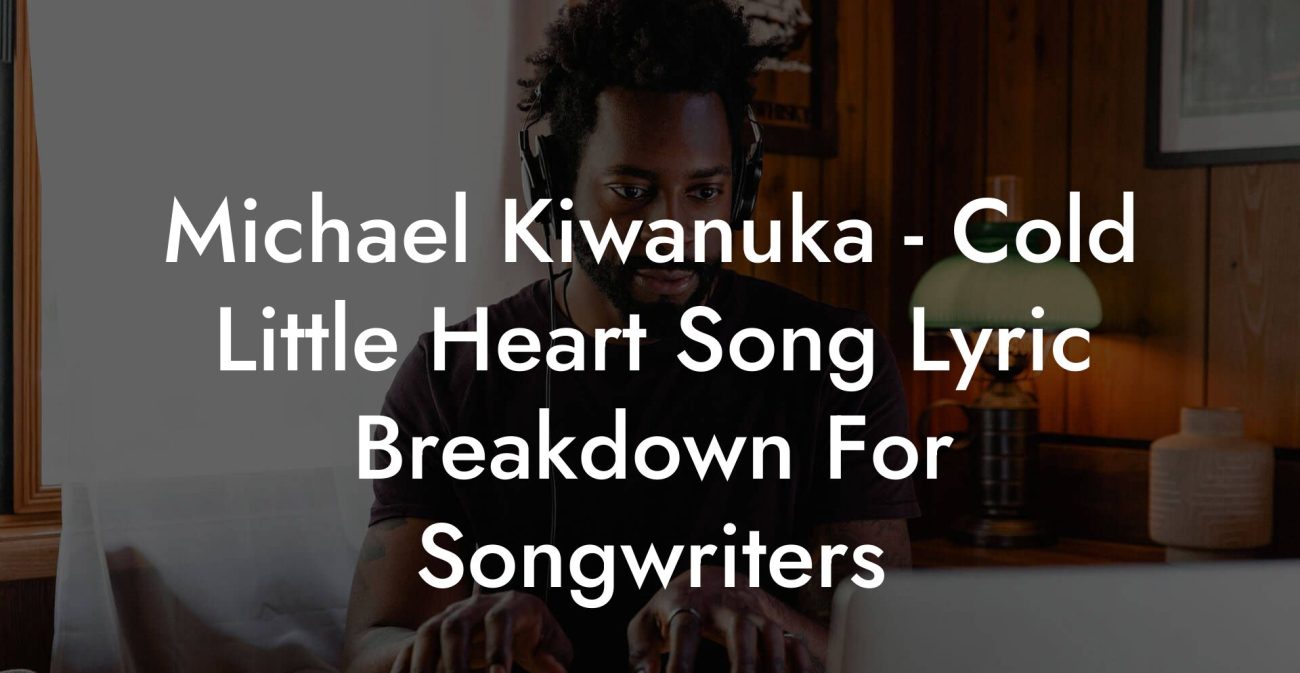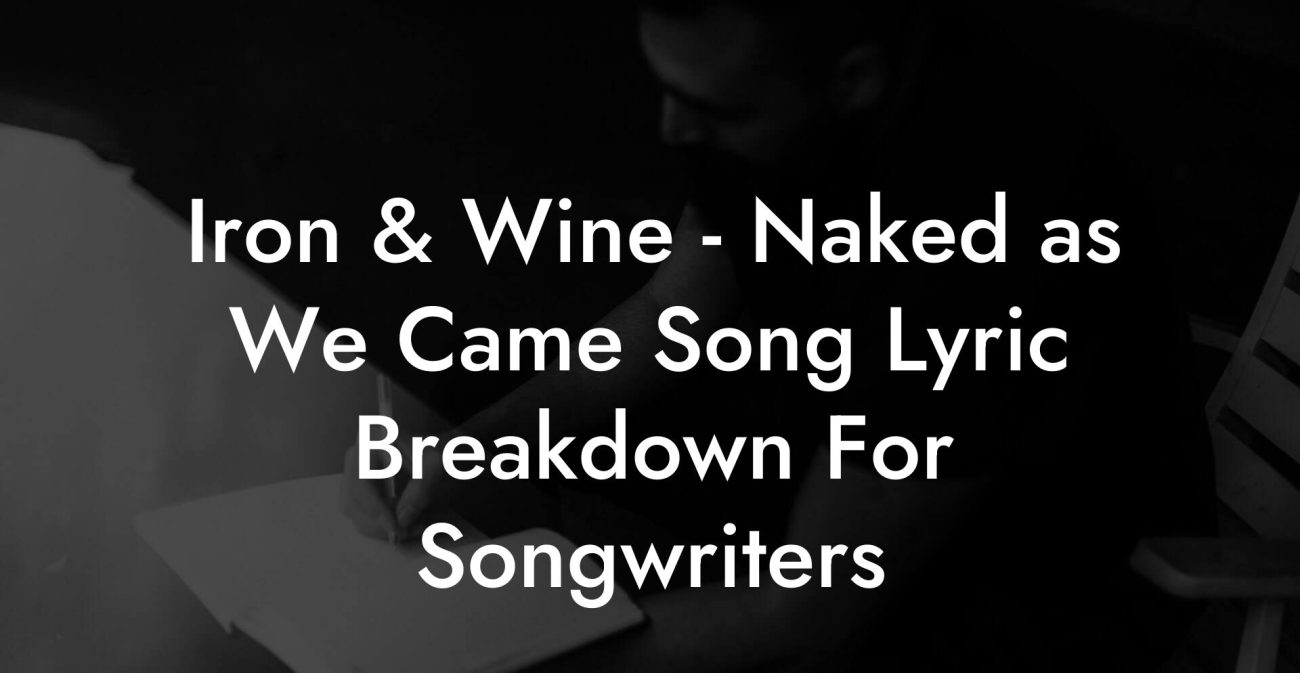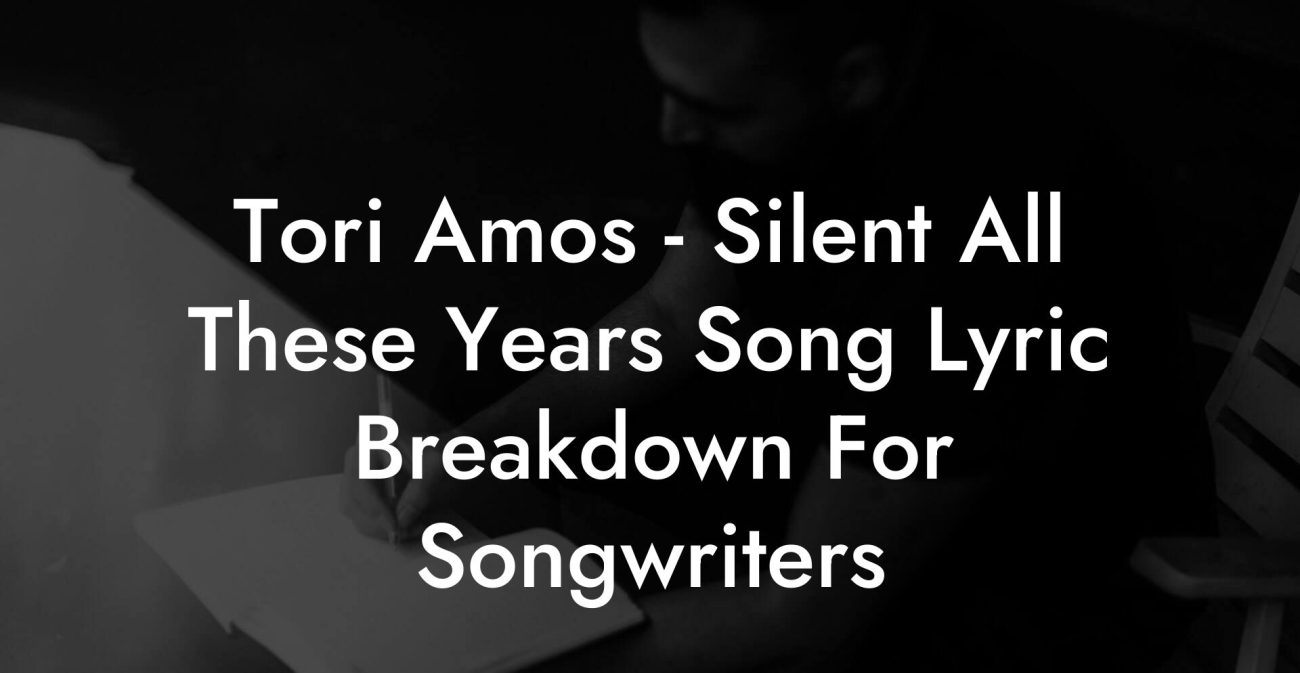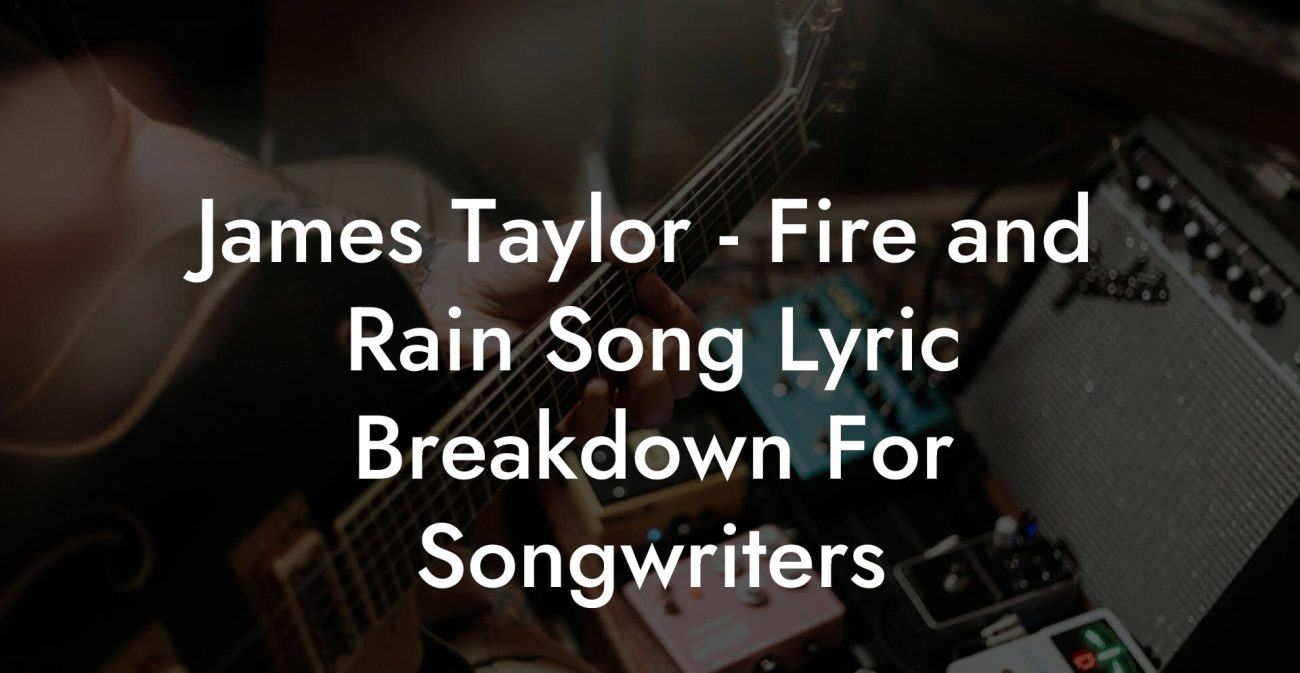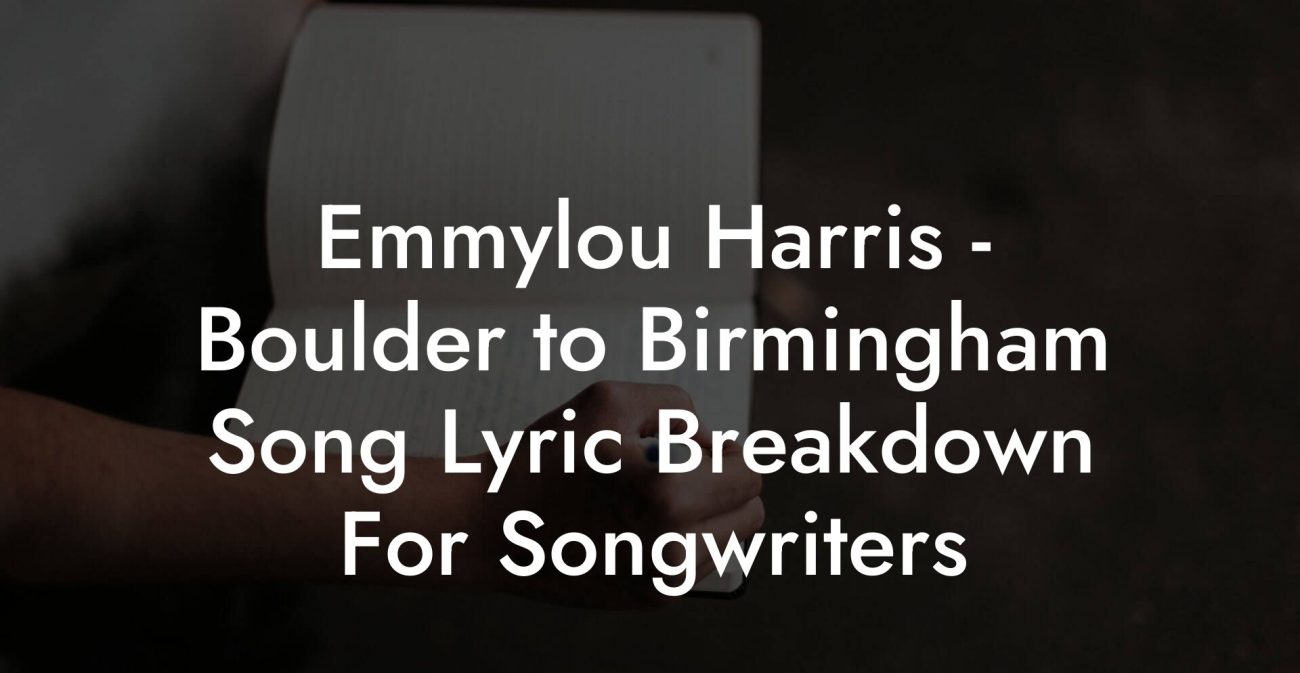Songwriting Advice
Billy Bragg - A New England Song Lyric Breakdown For Songwriters
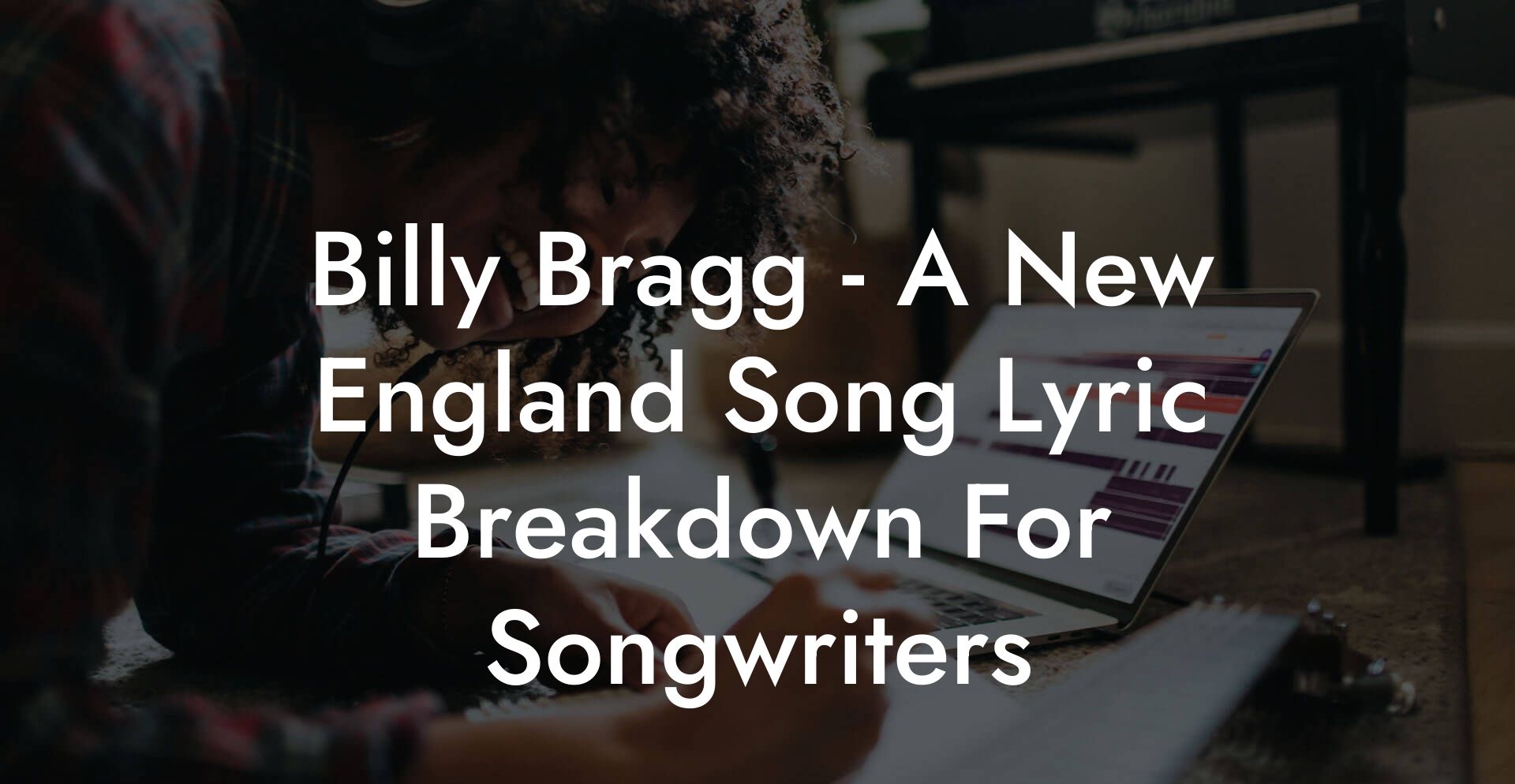
You came for lyric secrets and you hit pay dirt. Billy Bragg wrote A New England in a voice that sounds like a mate who tells you to quit your job and get on the next train. It is plainspoken, full of longing, and deceptively clever. That is why songwriters still steal his moves. In this breakdown we will look at structure, line craft, prosody, rhyme, imagery, and real life tricks to steal right back from the master.
Quick Interruption: Ever wondered how huge artists end up fighting for their own songs? The answer is in the fine print. Learn the lines that protect you. Own your masters. Keep royalties. Keep playing shows without moving back in with Mom. Find out more →
Quick Links to Useful Sections
- Why A New England Still Works as a Teaching Text
- The Core Promise and Emotional Engine
- Form and How Bragg Uses It
- Common structures you can steal
- Line Level Craft: Brevity and Punch
- Prosody and Why Each Word Lands Where It Does
- Quick prosody test you can do in ten minutes
- Rhyme and Near Rhyme That Feel Natural
- Imagery that Small Scale Details Give You Permission to Be Big
- Title Work: A New England as a Compact Idea Machine
- Voice and Persona: How Bragg Talks to You
- Hooks Without Cliches: How to Make a Chorus Memorably Honest
- Balancing Politics and Personal Detail
- Melodic Ideas That Support the Lyric
- Arrangement Choices That Keep the Focus on Words
- Line Edits You Can Steal From Bragg
- Advanced Lyric Moves: Callbacks and Micro Narratives
- Common Mistakes When Trying to Sound Direct
- Exercises Inspired by A New England
- Exercise 1. The One Object Story
- Exercise 2. The Conversational Chorus
- Exercise 3. The Permission to Be Small
- How to Steal the Feel Without Copying the Words
- Recording Demo Tips So Your Lyric Survives the First Pass
- FAQ
This article is written for millennial and Gen Z songwriters who want usable habits. Expect relatable scenarios, tiny comedic nudges, and clear exercises you can use to write lyrics that land. We will explain any term you have not met before. By the end you will know why a simple phrase in the chorus hits like a fist gently tapping your wound and how to put that hit in your own songs.
Why A New England Still Works as a Teaching Text
First a context note. Billy Bragg wrote and recorded A New England in the early nineteen eighties. The song sits in a space that mixes political awareness with small personal details. It is not cagey about feeling and it does not need theatrical metaphors to be effective. Songwriting students enjoy dissecting it because the craft is obvious and repeatable. That is a win for anyone learning how to write direct lyrics.
Another reason the song educates is economy. Every line carries freight. There is no place for unnecessary decoration. That forces you to study how each word functions. Songwriters will learn how to use plain language without sounding boring and how to make a title do heavy lifting.
The Core Promise and Emotional Engine
Every good song has one core promise. That is the single emotional idea the song will deliver every time. A New England makes a promise that is both romantic and restless. The narrator is asking for belonging while resisting surrender. That contradiction keeps the listener listening.
Write your one sentence summary before you write anything else. For A New England the sentence might read like this.
Promise: I want to belong to you but I am unsure if that will cost me who I am.
That line is your north star. It explains title placement, chorus structure, and the deliberate small images in the verses. If you try to tell two stories at once the song loses gravity. Keep one promise and let variations of that promise orbit it.
Form and How Bragg Uses It
A New England uses a straightforward pop form. Verses set details, the chorus states the core promise, and short bridges or tag lines add perspective. Simplicity of form forces lyrical precision. That is a technique you can copy. Use a form that is familiar so you can place listener expectations and then subvert them with a single fresh line.
Common structures you can steal
- Verse, chorus, verse, chorus, bridge, chorus. This lets you add a small twist in the bridge.
- Verse, chorus, verse, chorus with a short vocal tag at the end. Good when the title is strong enough to act as a closing line.
In A New England the chorus includes the title as a clear emotional answer. That gives the listener a predictable place to land without surrendering nuance. The chorus feels like both an admission and a dare. That tension makes it memorable.
Line Level Craft: Brevity and Punch
Billy Bragg writes like someone who learned to pack a suitcase in ten seconds and only took what matters. The lines are short and muscular. Each image is concrete and often small scale. Small images feel human. Human details make songs feel true. You can write about global heartbreak or the end of the world and still need a toothbrush in a glass to make listeners believe it.
Example technique to borrow right now.
- Write a verse of four lines. Make each line contain one concrete image.
- Make sure one line acts as a pivot. This is the emotional detail that reframes the scene in the chorus.
- Trim any abstract words that do not create a sensory image. Replace them with objects, actions, or places.
Real life scenario: You want to write about drifting apart with a friend. Instead of telling the reader you have grown apart, describe the last time they borrowed your shirt and returned a different playlist. Objects and habits show change without moralizing.
Prosody and Why Each Word Lands Where It Does
Prosody is the relationship between the natural rhythm of speech and the rhythm of the melody. If you put a stressed syllable on a weak beat the line will feel awkward even if it looks good on paper. Bragg is a master of prosody. His lines sit naturally in the sung rhythm. That makes his delivery feel honest and effortless.
Prosody explained like a text thread. If you read a line out loud and it would sound right in a normal conversation then it will probably sit right in a melody that sounds conversational. If the line requires you to contort your mouth the audience will feel the effort and that can break authenticity.
Quick prosody test you can do in ten minutes
- Take a line you like from your draft and speak it at normal speed.
- Tap your foot to a simple pulse and speak the line so the natural stresses fall on strong pulses.
- If you have to push or rush words to make them fit adjust the words to match the rhythm. Prefer shorter words on busy beats and longer vowels on held notes.
In A New England the chorus contains long vowels and open syllables that sit well on sustained melody notes. That is not an accident. When you write a chorus, choose words that are singable. Vowels like ah, oh, and ay are comfortable to hold.
Rhyme and Near Rhyme That Feel Natural
Bragg does not rely on clever end rhyme. He uses internal rhymes and near rhymes to create momentum. That feels less forced. The ear likes patterns but hates predictability. Use rhyme to glue the line but do not let rhyme hijack meaning.
Example of rhyme moves you can try.
- Use a family rhyme. That is a group of words that share similar vowel or consonant colors without exact rhyme.
- Use internal rhyme to add bounce inside a line instead of at the ends where it is expected.
- Let one perfect rhyme carry the emotional turn so it feels earned and not showy.
Real life scenario: You write a line where the narrator remembers a song. Instead of ending two lines with perfect rhymes, tuck a rhyme inside a line and let the final line land on a single perfect rhyme that feels like a small exhale.
Imagery that Small Scale Details Give You Permission to Be Big
Bragg strings small objects into a scene and lets the listener do the heavy lifting. He rarely paints a cinematic sweep. He brings forth a worn jacket, a train platform, or a borrowed cigarette and suddenly you feel an entire relationship. That is the power of detail. In songwriting you do not need to describe every element. Choose one micro detail that implies the rest.
Exercise you can use tonight.
- Pick a memory of leaving or being left that feels vivid.
- Write five objects that were present in that moment.
- Write four lines using those objects as verbs or actors. Make one object do something surprising.
If the listener can see a toothbrush or a ticket stub the rest of the narrative will fill in for them. Your job is to place the right bricks not build the entire house.
Title Work: A New England as a Compact Idea Machine
A title needs to carry thematic weight and be singable. A New England works because it is short and specific while still allowing ambiguity. Is the title a place, a state of mind, or an idea of renewal? All of those readings are possible and that makes it flexible. The best titles make a promise of meaning but keep a little mystery.
How to craft a title like that.
- Write a one sentence emotional promise. Strip it to the essential noun or phrase that could act as a title.
- Test the title by singing it on a single note. If it sits well let it breathe. If it chokes the melody try a synonym with a better vowel sound.
- Ask whether the title can carry multiple meanings. A good title will have room for different interpretations that the verses can explore.
Real life scenario: You are writing about a breakup in a small town. A title like Back To Market is functional but flat. A title like Town Lights has a better vowel and ambiguity. It can be the literal lights or the metaphor for attention. Which would you rather sing?
Voice and Persona: How Bragg Talks to You
Bragg writes like a person speaking with urgency and sincerity. His narrator is not a theatrical voice. That is part of the charm. If you want to write like that ask yourself what kind of friend your narrator would be. Is the narrator blunt? Is the narrator witty? Then use that tonal choice consistently. In A New England the narrator mixes hope and resignation with a wry wink. That tone carries the song as much as the words.
Voice exercise.
- Write a paragraph from your narrator to their ex as a text message. Keep it under three sentences.
- Now lift the best line from that paragraph into a lyric. Keep the voice and the attitude.
- Repeat the paragraph exercise for a friend and compare. Which voice wins and why.
Hooks Without Cliches: How to Make a Chorus Memorably Honest
A chorus is a promise repeated with a small twist. Bragg avoids sugar coated lines. His chorus states longing in plain speech which paradoxically makes it hit harder. The trick is to make the chorus feel like the obvious next sentence in the conversation. If the chorus sounds like a billboard line it will stick but feel hollow. If it sounds like something someone would say in a car at midnight it will stick and feel true.
Chorus building shortcuts.
- Start by restating the core promise in one short sentence.
- Repeat a key phrase to create the ring phrase effect. Ring phrase is repeating the same words at the start and end of the chorus so it feels circular.
- Add one small consequence or image in the final line to give the chorus shape.
Real life scenario: You want a chorus about leaving. The first line could be I will go back home. Repeat a short phrase like go back. Then add a small consequence like and learn to like the silence. That last line gives the chorus a sting.
Balancing Politics and Personal Detail
Billy Bragg often balances political observation with personal confession. A New England is quieter than some of his work but the technique is useful. If you write songs that have opinions, anchor those opinions in a human story. Politics without a person is a sermon. People without any context can feel self indulgent. Put them together and you have both urgency and empathy.
Try this prompt.
- Write a political line you believe in. Keep it one sentence.
- Write a personal image that contradicts or complicates that line.
- Put them together and let the tension between them be your chorus or bridge.
Real life example: You believe communities matter more than brands. Pair that with a detail about a closed cafe where the owner kept your birthday card. The closing of the cafe makes the political line personal.
Melodic Ideas That Support the Lyric
Bragg is a singer first and a theatrical melodist second. That helps because the melody serves words not the other way around. If your melody is too complicated it forces words into contortions. A simple melodic contour with one memorable leap can feel astonishing if the words match. Remember what we said about prosody. A melody that feels like speaking usually wins on first listen.
Melody drills.
- Sing your lyric on a simple three note pattern and record it. If it works keep the pattern. If not change a word to make it singable.
- Place the title on the most singable note. That note should be comfortable to hold and repeat on subsequent choruses.
- Use a small leap into the chorus title. The leap gives the ear a sense of arrival.
Arrangement Choices That Keep the Focus on Words
When words matter arrangements should be respectful. Bragg often uses sparse accompaniment so the lyric sits forward. That is not a requirement. You can have lush production and still keep clarity. The principle is simple. Keep competing elements out of the frequency band where the vocal sits during the lines you want people to hear. Use quiet moments to let a lyric breathe. Mix louder moments into choruses as an emotional lift but not a smokescreen.
Practical mixing tips for writers and home producers.
- Use simple chords during verses so the vocal is on its own. Busy chords mask words.
- Bring in a rhythmic or textural change for the chorus to signal a shift in meaning.
- Consider a one measure pause before the chorus title to create tension and focus.
Line Edits You Can Steal From Bragg
Use the crime scene edit to tighten your verses. Bragg always removes extras. Every word must earn its place.
- Underline every abstract or vague word. Replace it with a concrete object, action, or image.
- Remove any line that repeats information without adding new angle.
- Make sure your pivot line in verse two changes perspective or adds a consequence. That keeps momentum.
Before and after micro example.
Before: I feel like we are drifting apart and that makes me sad.
After: Your last text said see you soon and then you never picked up my calls.
See the difference. The second line has a time crumb and an action that implies the emotion. You do not need to name the feeling.
Advanced Lyric Moves: Callbacks and Micro Narratives
Bragg uses callbacks where a small line from verse one returns altered in verse two. That technique makes the song feel cohesive and rewarding on repeat listens. Micro narrative means telling small episodes rather than summarizing a long relationship. Small episodes are easier to sketch and feel more honest.
How to write a callback.
- Choose a single concrete image from verse one.
- Use the same image in verse two but change who or what interacts with it.
- The change in the image should reveal a shift in the narrator.
Real life scenario: In verse one you mention a mug with a chipped handle. In verse two the same mug is at a different breakfast table. The movement between tables tells the story.
Common Mistakes When Trying to Sound Direct
Directness is not the same as simplicity. You can be simple and bland or simple and precise. Avoid these traps.
- Over explaining. Trust your listener to fill in the blanks. A single strong image fills more than a paragraph of explanation.
- Being too witty at the expense of feeling. A clever line can be impressive but if it pulls attention away from what you mean it hurts the song.
- Using too many adjectives. Prefer verbs and nouns. Action creates momentum.
Exercises Inspired by A New England
Exercise 1. The One Object Story
Pick one object from your life and write four lines where that object shows change over time. Make one line a pivot that reveals the narrator is different than before. Time limit twenty minutes.
Exercise 2. The Conversational Chorus
Write a chorus as if you are saying one honest sentence to a friend at a bus stop. Keep it under twelve words. Repeat a short phrase within the chorus to create a ring phrase. Time limit ten minutes.
Exercise 3. The Permission to Be Small
Write a verse that contains exactly three images and no abstract statements. The entire verse should add up to one scene. Time limit fifteen minutes.
How to Steal the Feel Without Copying the Words
It is fine to learn from Bragg. It is not fine to copy. Here is how to borrow his strengths without plagiarism.
- Borrow the method not the lines. Use short concrete images in service of a single promise.
- Borrow the attitude not the lines. That could be wry optimism or stubborn hope.
- Borrow the economy. Trim every line to its essential image and feeling.
Real world example: You like the conversational honesty in A New England. Write a new song where the narrator confesses wanting to go home but being unsure what waiting at home would be. Use different objects and a different titular image. That is learning.
Recording Demo Tips So Your Lyric Survives the First Pass
When you demo a lyric for the first time you will find parts that do not sing. Record a raw vocal with a simple guitar or piano. Leave space in the production so the lyric is audible. If a line disappears in the mix rewrite it. Demo to learn, not to impress. The aim is clarity.
Mini checklist for a strong demo.
- Put the vocal forward and raw for verse takes.
- Use one additional texture in the chorus to lift energy.
- Record two takes and choose the take that feels like conversation not performance.
FAQ
What is prosody and why does it matter in A New England
Prosody is the natural rhythm of speech and how it matches the sung melody. It matters because if a stressed word lands on a weak beat the listener will notice discomfort even if they cannot explain it. A New England works because the words sit naturally on the melody. That makes the delivery feel honest and effortless.
Can I use small domestic details in any song genre
Yes. Small domestic details ground songs and make them feel real. They work in folk, pop, hip hop, and rock. The trick is matching the detail to the song voice. A chipped mug can be tender or bitter depending on context. Choose images that reflect the emotional posture of your song.
How do I write a ring phrase like Bragg uses
A ring phrase repeats the same short phrase at the start and end of the chorus or at predictable points. To write one, choose a phrase that states the core promise in short language. Place it at the beginning of the chorus and repeat it at the end to create a circular feeling. Use small variation the last time for a twist.
Should I simplify my lyrics to sound like Billy Bragg
Simplify for clarity not for imitation. The value in plain language is honesty. If simple words express what you feel then use them. If your idea needs more texture find the concrete image that carries it. The goal is to write with purpose and truth.
How do I avoid sounding like an imitator
Bring your own life. Use personal details that only you can supply. Keep the technique you admire but supply a new voice and new images. That combination is influence doing healthy work.

